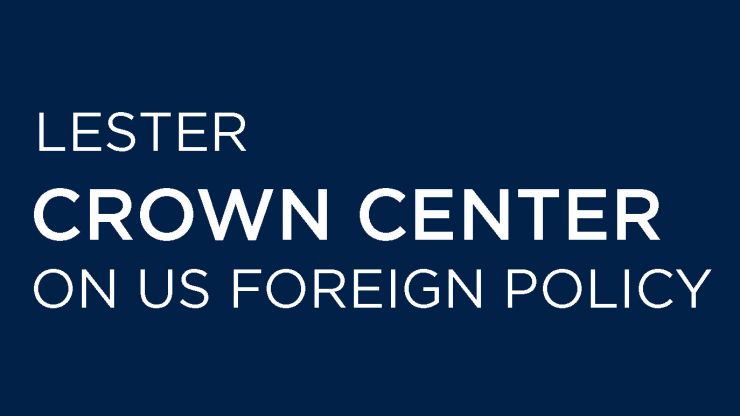Urban, Suburban, and Rural Americans Agree on Key Issues Ahead of 2020 Election
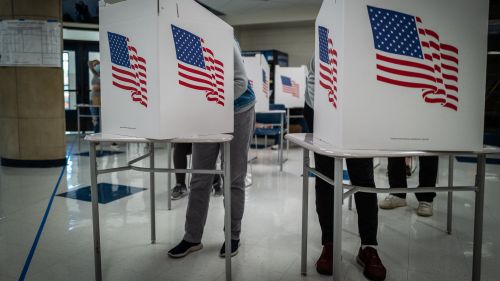
Data from the 2019 Chicago Council Survey revealed that certain issues which once divided those living in cities, suburbs, or the country have become sources of agreement
As the United States moves ever closer to the 2020 election, the differences among Americans are being highlighted by commentators, pundits, and politicians alike. Of particular importance are the differences between Americans who live in urban, suburban, and rural areas, each of which are often characterized by predominant support one political party. However, data from the 2019 Chicago Council Survey revealed that certain issues which once divided those living in cities, suburbs, or the country have become sources of agreement. In particular, attitudes relating to international trade, climate change, and engagement with China have seen a sharp uptick in agreement over the past several years.
For the duration of the Trump administration, international trade been a hot topic as the United States has levied tariffs on imports from adversaries and partners alike, which has received a mixed reception from Americans. However, in terms of the attitudes of urban, suburban, and rural Americans toward the effects of international trade on the US economy, there has been a significant shift toward approval.
From 2016 to 2019, the proportion of urban, suburban, and rural residents who say that international trade is good for the US economy all increased by 25-percentage-points or more. For rural Americans, nearly twice as many in 2019 (85%) say that international trade is good compared to 2016 (47%). These increases across the board have brought each geography close to the same opinion with regard to the effects of international trade.
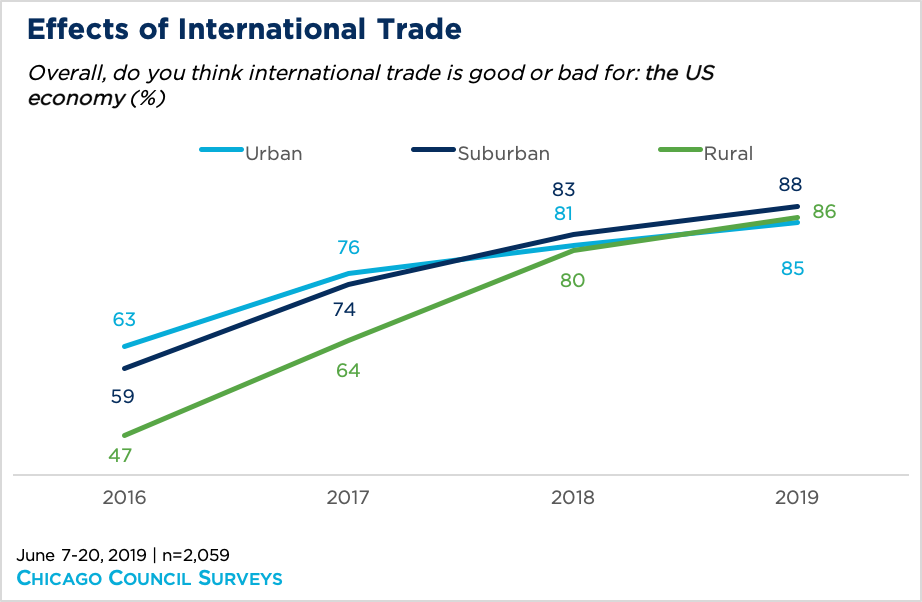
While climate change, too, has remained a broadly controversial issue among Americans, attitudes toward how to handle it have begun to converge. While in 2016 pluralities of suburban (41%) and rural (43%) residents said that climate change should be addressed gradually with low cost steps, pluralities of rural (41%) residents and majorities of urban (55%) and suburban (50%) residents in 2019 said that climate change is a serious problem that requires immediate action, even if it is costly. This shift in attitudes is a significant change as the issue of climate change and how to address it has traditionally been an extremely divisive topic.
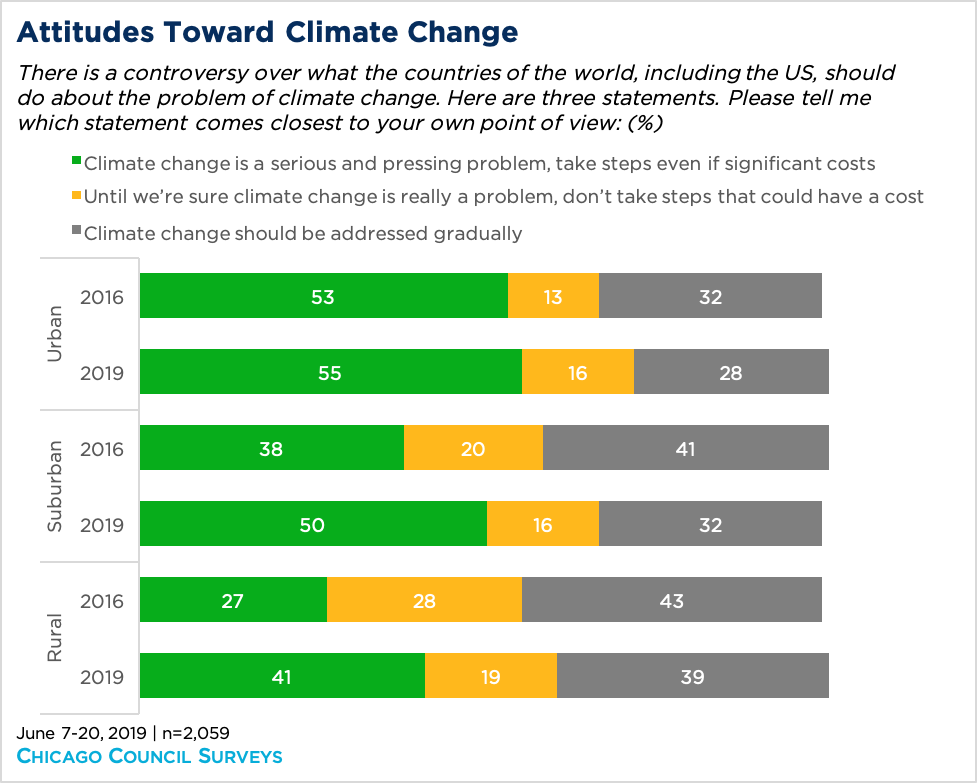
Finally, while the Trump administration has taken increasingly harsh policy positions vis-à-vis China, Americans in all areas of the country are still committed to diplomacy. Asked whether the United States should engage in friendly cooperation with China or actively work to limit their power, majorities of urban (68%), suburban (68%), and rural (64%) residents opt for cooperation and engagement with China.
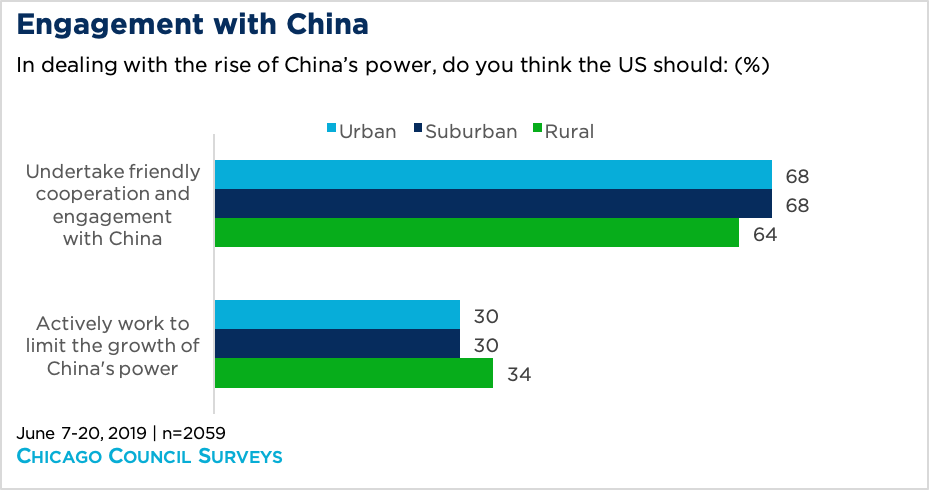
As President Donald Trump and Democratic candidate Joe Biden approach the debates leading up to November 3, they would do well to acknowledge the growing consensus on these issues among Americans. Ignoring these signs could mean defeat in one of the most contentious elections in recent history.
